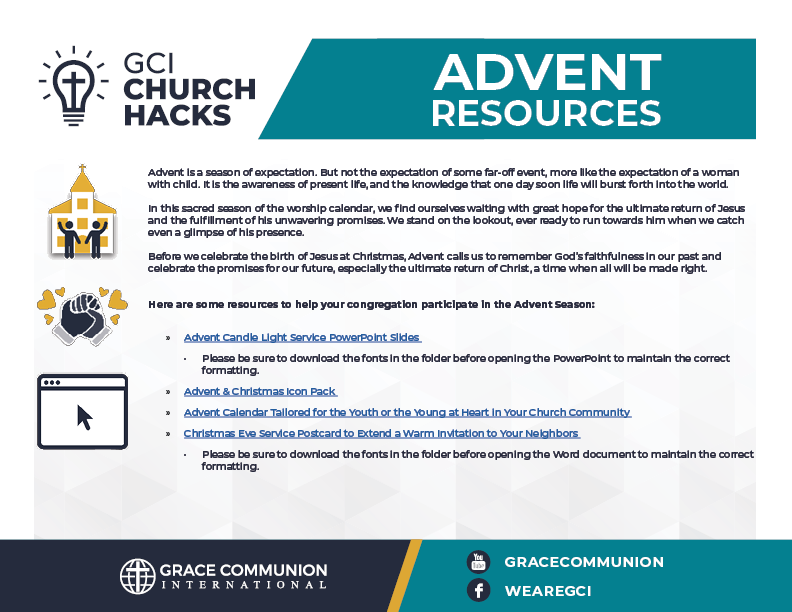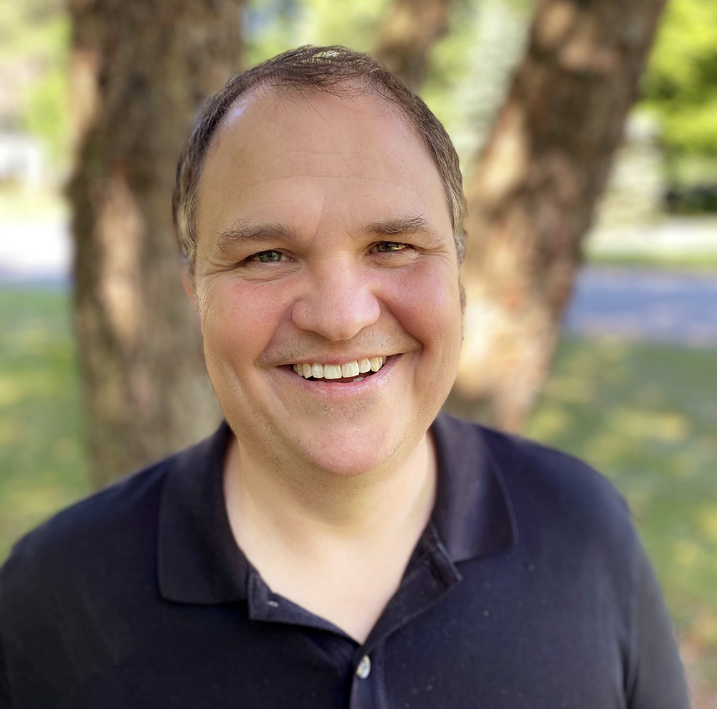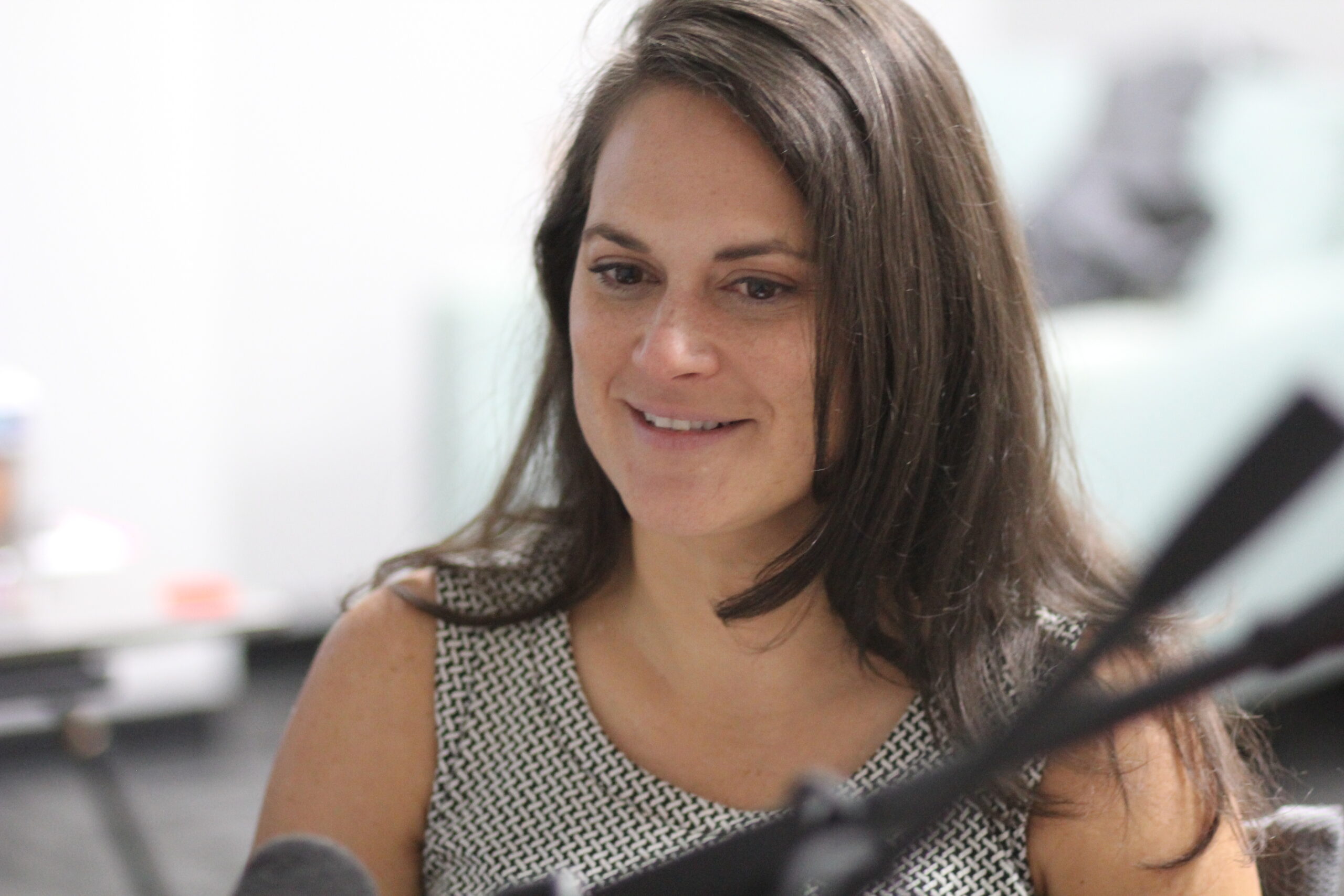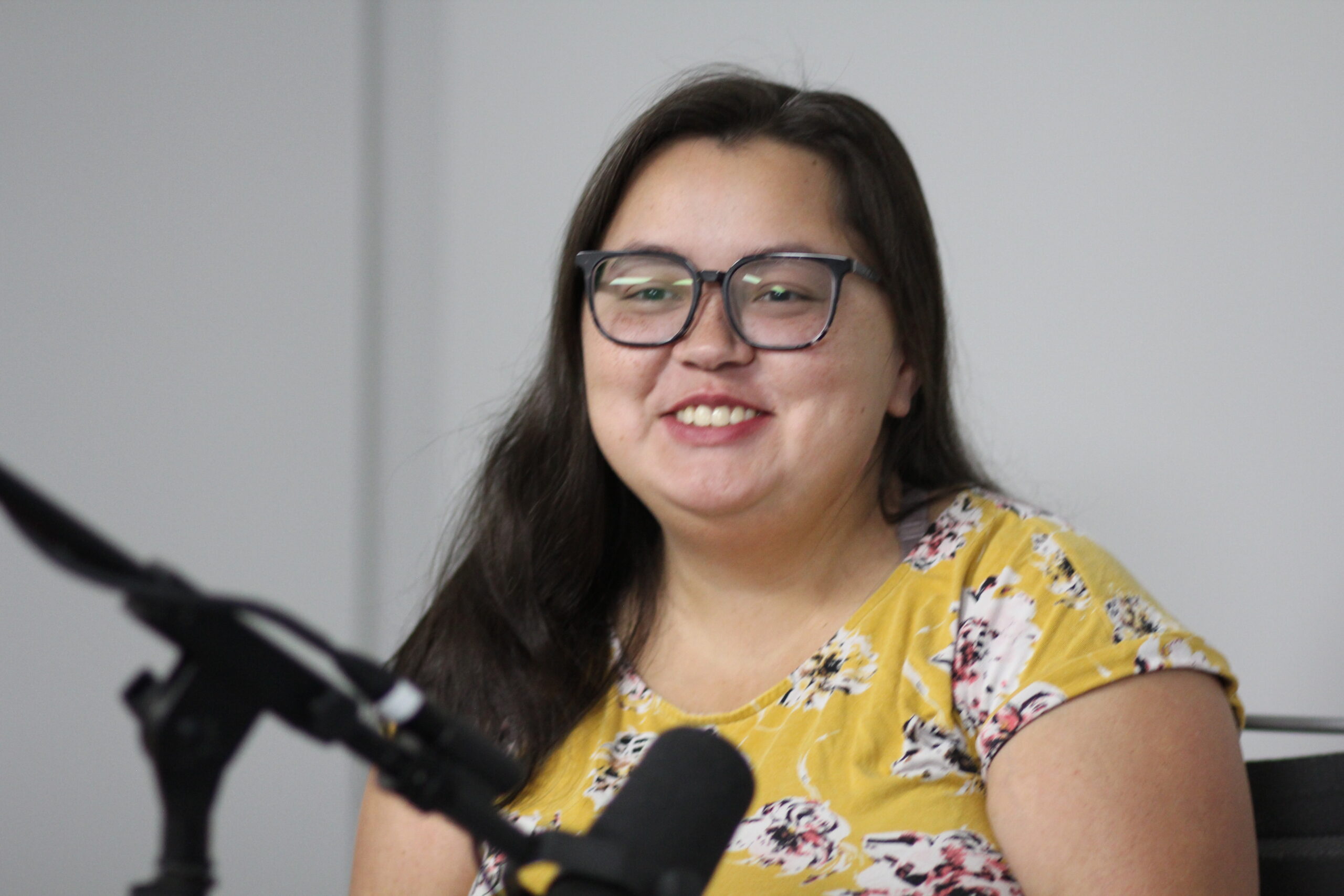God in the Neighborhood w/ Winn Collier
Welcome to the Gospel Reverb podcast. Gospel Reverb is an audio gathering for preachers, teachers, and Bible thrill seekers. Each month, our host, Anthony Mullins, will interview a new guest to gain insights and preaching nuggets mined from select passages of scripture, and that month’s Revised Common Lectionary.
The podcast’s passion is to proclaim and boast in Jesus Christ, the one who reveals the heart of God, Father, Son, and Holy Spirit. And now onto the episode.
Anthony: Hello friends and welcome to the latest episode of Gospel Reverb. Gospel Reverb is a podcast devoted to bringing you insights from Scripture found in the Revised Common Lectionary and sharing commentary from a Christ-centered and Trinitarian view.
I’m your host, Anthony Mullins, and I’m jazzed to welcome our guest this month, Dr. Winn Collier. Winn is an Episcopal priest who serves as the director of the Eugene Peterson Center for Christian Imagination at Western Theological Seminary, along with being an associate professor of Pastoral Theology and Christian Imagination.
Wynn served as a pastor for 27 years and was the founding pastor of All Souls Charlottesville. He’s probably best known for writing the popular authorized biography of Eugene Peterson. It’s called A Burning In My Bones.
And friends, it was my personal book of the year last year. I’ve read through it a couple of times. It’s an exceptional literary work. And I hope you’ll get a copy wherever you purchase your favorite books.
Wynn, thank you for being with us and welcome to the podcast. And since this is your first time on Gospel Reverb, we’d love to know a little bit about you, your personal story, your family, and how you are participating with the Lord these days.
Winn: Hi, Anthony. Thank you for inviting me to have this conversation with you. I’ve been looking forward to it. Where should I begin? I’m a Texan. I was born in Texas into a pastor’s family. So that means I love Mexican food, and I’m probably a little bit obnoxious. But …
[00:02:06] Anthony: Is “Tex Mex” Mexican food, by the way, Winn?
[00:02:08] Winn: Oh, right. That’s short—yes. Technically, yes, it is Tex Mex. That’s a fair call right there.
I am the husband to Miska Collier. She’s a spiritual director and a yoga teacher, and I am a dad to two college age sons. And I’m a pastor and a writer, and I love the church. I love this beautiful world God’s given us.
I’m heartbroken over what we do with it many days, but I have a deep abiding faith in the one who is nailed to a cross and then raised from the dead and that’s my hope.
[00:02:57] Anthony: And hope is a spiritual practice, isn’t it? We practice it daily, and it feels like to me that hope in a world that has a difficult time hoping, it’s an act of resistance, isn’t it? And we hope in the one who hung from the cross, like you said.
You became a good friend of Eugene Peterson. Even though he is since passed, he remains a mentor of mine in pastoral theology and practice. And you wrote about his life and his pastoral calling.
Would you take some time and just tell us about the man Eugene Peterson? And if anyone in the listening audience hasn’t read his work, is there a particular book or piece that you would recommend? And if so, why?
[00:03:40] Winn: Sure. Like you, I didn’t come into writing Eugene’s biography as an innocent bystander. I had been really transformed not just by Eugene, but by how he was a witness to the oldest, most ancient way the church has understood of what it means to be a pastor.
And at least in my experience, that had just been really obscured. And one elder at a church where I was years ago, after a Sunday, came up and handed me Eugene’s Working the Angles, The Shape of Pastoral Integrity. And he said, “Winn, I think you’ll enjoy this.”
And I realized later what he meant was, Winn, I think you need this. And he was absolutely right, but it gave me a language for, I think, what the cry of my heart was, but I just I didn’t know. I didn’t know what to call it.
I didn’t I didn’t know what this pastoral vision meant, what this deep love for the church meant, what this wide and generous and expansive vision of God’s presence in the world meant. And Eugene, primarily at first through letters, became a pastor to me, writing letters back and forth.
And 12 or 15 years later, I began to write his biography. Eugene is known in multiple different ways, depending on your circle. So, there’s a number of us who feel called deeply to this pastoral life. And Eugene, probably in the last 15 years, is one of those primary voices, just calling us back to fidelity as pastors.
And then there’s the way he’s most widely known probably is as the translator of The Message. Millions of people bought and read The Message. And then there’s this assorted company of writers and artists and photographers and musicians and carpenters and plumbers and what I call befuddled, but really trying to remain faithful Christians, who found Eugene to be this very wise, rooted, God-drenched voice.
And so, I think that’s his abiding gift to the church, and if you haven’t read Eugene, I would say maybe start with one of his classics, which is Long Obedience in the Same Direction. It’s this just profound, really wedded into the realities of life, exploration through the Psalms and the Songs of Ascent of what does it mean to be one who is following in the way of Jesus? What [does] discipleship really look like?
Another option might be Leap Over a Wall, which is his meditations on the life of David and what he termed—and now has become almost cliche, but—earthy spirituality. And those might be good starting places.
[00:06:52] Anthony: Yeah, he’s a prism. Every human is layered and nuanced and complicated.
But the thing I’ve always been drawn to about him through his writings and the interviews I’ve seen is just the humility. What pastor writes a book called An Unnecessary Pastor? Typically, these days, we’re writing about how necessary we are at whatever we do but he was dogged in his determination to point to the true shepherd Jesus.
Again, I’m just so grateful, Winn, for your work and A Burning In My Bones. It was exceptional. Thank you. And I know it probably took some of your life to do it, but …
[00:07:36] Winn: It did. I thought it had buried me a couple of times.
[00:07:41] Anthony: Oh boy.
The term Christian imagination pops up frequently with your work in the academic world. Some in our listening audience may not be familiar with the term. So, help us understand. What is it and why does it matter?
[00:07:55] Winn: I guess you should start with the word imagination. A lot of times we think the word imagination only means the imaginary, like things that aren’t actually real. But imagination is much deeper and wider than that.
Really, it’s the capacity to make meaning out of things. It’s the integrative work that every human does. So, some people might say, I’m not very imaginative. That’s actually not true; it’s part of being human. If you make sense of things in the world, if you take data and experiences and relationships and conversations and intuitions and loves, and you begin to integrate that and to find meaning in that purpose, then you are doing imaginative work.
Science at its best is imaginative mathematics. John Polkinghorne would talk about the beauty of mathematics and imagination. Then a Christian imagination means that our meaning making of this world is formed and shaped and grounded in and find its only life and energy in the person of Jesus Christ, the true human, the one who brought God and humanity into intersection and into union.
And a Christian imagination means that if it’s true, as Hopkins said [As Kingfishers Catch Fire by Gerard Manley Hopkins], that Christ plays in 10,000 places, that grace is erupting everywhere, then a Christian imagination means that we expect to pull all of God’s reality—as much as we’re able to—and all of the different threads of God’s truth from all of the ways that God reveals God’s self.
So through conversation, obviously through Scripture, first and foremost, the person of Christ, through the Book of Creation, through the wonders of human creativity, which is an image-bearing capacity that we as humans have through— it’s why we need novels and poetry and music and all the beautiful things is because this is actually, when it’s true, it’s actually Christ at play.
And so Christian imagination is refusing to segregate our life as if the spiritual reality is only this tiny little sphere that we’re now trying to ward off everything else from, but it’s far more pervasive and expansive. And it means that all of creation and all of our life is brought into the healing and the presence of Christ.
It’s being made new and that there is always the possibility of mercy and grace and beauty and wonder that is holy, that comes from God overwhelming us at any moment in any place.
[00:10:42] Anthony: My thoughts got stuck on the word wonder, which you used. And I’m of the opinion, Winn, that it’s one of the areas where the church really needs to up its game, that we’ve just lost our sense of wonder, that the Christian faith can sometimes get flat.
Am I wrong? It’s beauty, and it’s wonder.
[00:11:02] Winn: No that’s right. And I’d like to encourage you in that, as I’ve heard you describe the purpose of what your work here with Gospel Reverb is right on track, because sometimes we’ll say, hey we need to have more wonder. And then we’ll go out and abstractly seek to experience wonder, but wonder is wedded to the triune God.
Wonder is wedded to what it means to encounter the living Christ who is resurrected now in this world, who is present this very moment, who is nearer to me than my own breath, this God who I meet in the eyes of every stranger. Wonder is found as we more deeply encounter the brilliant and shimmering reality of Jesus Christ.
And as we seek to more truly encounter the resurrected one, then wonder begins to happen. But if we seek wonder for its own sake, it’s always going to be a shadow. It might be a good shadow, but it’s always going to be just a shadow. And so, as we pursue Christ, and as we open our heart to not just our narrow parochial vision of who Christ is, but actually the Christ as revealed in the Hebrew Bible to Revelation, the Christ that’s revealed in the wonder of creation itself, then all these things begin to fire like electricity.
[00:12:41] Anthony: My wife and I rewatched the movie last night based on Fred Rogers, Mr. Rogers. And he loved to talk about wonder and silence, how they are wedded together, that we just have so much noise in the world, that we just don’t see it. Christ, grow our awareness of who you are and how you’re at work in our places and spaces.
Thank you for your work, Winn. That sounds exciting, what you’re up to there at Western.
Alright, let’s do this. We have several lectionary passages we’ll be discussing here today.
Mark 13:24-37 “Spiritual B12”
Mark 1:1-8 “The Good News of Jesus Christ”
John 1:6-8; 9-28 “God In the Neighborhood”
Luke 1:26-38 “God’s Favor”
Let’s transition to our first pericope of the month. It’s Mark 13:24–37. I’ll be reading from the New Revised Standard Version, the updated edition. It’s a Revised Common Lectionary passage for the first Sunday of Advent on December 3.
“But in those days, after that suffering, the sun will be darkened, and the moon will not give its light, 25 and the stars will be falling from heaven, and the powers in the heavens will be shaken. 26 “Then they will see ‘the Son of Man coming in clouds’ with great power and glory. 27 Then he will send out the angels and gather the elect from the four winds, from the ends of the earth to the ends of heaven. 28 “From the fig tree learn its lesson: as soon as its branch becomes tender and puts forth its leaves, you know that summer is near. 29 So also, when you see these things taking place, you know that he is near, at the very gates. 30 Truly I tell you, this generation will not pass away until all these things have taken place. 31 Heaven and earth will pass away, but my words will not pass away. 32 “But about that day or hour no one knows, neither the angels in heaven nor the Son, but only the Father. 33 Beware, keep alert, for you do not know when the time will come. 34 It is like a man going on a journey, when he leaves home and puts his slaves in charge, each with his work, and commands the doorkeeper to be on the watch. 35 Therefore, keep awake, for you do not know when the master of the house will come, in the evening or at midnight or at cockcrow or at dawn, 36 or else he may find you asleep when he comes suddenly. 37 And what I say to you I say to all: Keep awake.”
I would imagine, Winn, as an Episcopal priest, you’re quite familiar with the liturgical calendar and the season of Advent. So, I want to ask you on this first Sunday of Advent, how does this season fit into the grand narrative of Scripture and the retelling of the gospel story?
[00:15:35] Winn: I love how Advent is the beginning of the Christian year. And so, at the very beginning of Christian time—and when we say Christian time, what we mean is time that is as it truly is, which is centered in Jesus Christ. We wouldn’t even have time, we wouldn’t have history, we wouldn’t have humanity if it weren’t for the true human, our brother, Jesus Christ.
And at the beginning of the Christian year, we’re invited for these four weeks to retell, but not just retell, as if it’s merely reflection, but actually to re-enter the truest story of humanity, which is the story of Christ, bringing God and humanity together in this one human. And what’s deeply powerful about Advent is it encompasses the totality of the human story in all of history.
So, it’s not only, obviously as we know, it’s not only a time of preparation for the celebration of Christmas. Even as we’re doing that, it’s a much broader story. It’s looking back to before human time ever began and realize that all of creation has always been waiting for the coming of Christ. And now that Christ in the person of Jesus, God has come into the human story in a more profound and immediate and fleshly way, that we’re again, looking forward to the ultimate end of human history, which is the renewal of all things when Jesus will come again.
And so, in these four weeks—and it’s interesting how we’ve lost this in most sort of Protestant expressions of Advent. But for a lot of church history, when Advent was celebrated, it was also a penitential [relating to penance / remorse] season, something like Lent.
And in Lent, we often do some kind of fasting or some way of helping our body to really be attentive to the in-breaking realities of Christ. And Advent was also that way. There’s something about this conditioning of ourselves, this posture of humble hope, which recognizes that unless God breaks into our reality, we are doomed.
But the good news is that God has, and God will, and we are never abandoned, and we are never alone. And we are always in this place of recognizing what God has done, and what God will do. We’re just waiting for the story to continue to unfold. And that’s a good place to be.
[00:18:28] Anthony: Yeah. And Karl Barth would say it’s the only place to be. I think he said in Church Dogmatics, “What other time or season can or will the church ever have, but that of Advent.”
I can still hear Fleming Rutledge pushing back on Advent just being a placeholder for Christmas as just, we’re just longing to get to Christmas. No, this is the season we’re in.
And I think it was Frederick Buechner that talked about Advent being like being in a theater. There’s this sense of anticipation for the curtain to offer up the great reveal. And of course, the reveal is the Son of God and his reappearance.
Winn, if you were exegeting this passage to prepare for a sermon—and there’s a lot in here and it can get sideways really quickly—what would be your focus on declaring the gospel?
[00:19:22] Winn: Since you mentioned Barth, Barth once said that when he was preaching a sermon, he would always assume that there was at least one person in the room asking the question, could this story possibly be true?
And then Barth says, then I would preach to that one person. And that’s a deep resonance for me and how I understand the gospel. It is, in every profound and penetrating way, it is deeply good news! And good news will be often disruptive. It will unnerve, but it always creates life and possibility.
So, when I when I read this passage yesterday thinking about our conversation,
I first went to these opening lines. The good news of God seems to always arrive, and of course, it’s so because we’re always in this condition, in one way or another. It always arrives when it seems like suffering rules the day. When it seems like the sun itself has darkened. When the moon, even the source of beauty and light, seems to be giving no light anymore.
When it seems like all that we count on, like even the stars, seem like they’re just falling out of the sky. Whenever it seems like the powers of heaven are being shaken and all the powers that we rely on and depend on.
And we’re walking through some things as a family right now where I sense a little bit of that. I sense where the powers are shaken, and stars seem to be falling. And it’s precisely into that place that the Son of Man comes with great power. And I believe that the Christian story, the Jesus-centered story, is that Jesus enters into the suffering realities of the world.
Today as I’m thinking through this and we’re having this conversation, things are completely unraveling in Israel and Gaza. And I hope that by the time people listen to this, that’s changed. I don’t have a ton of hope. I do have hope that this will not be the final word. That these realities, we can’t ignore them. We must name them. We must weep in them. We must weep with those who are weeping.
And we know that there is coming a day, and has already been a day, where it has been inaugurated and revealed. And the final chapter is coming where this Son of Man will come in great power. And in that day, the sun will be bright and the moon will shimmer with radiance and the stars will be fixed like beauty as they’re meant to be. And the power, because it’s in God’s good hands will not be shaken. And I long for that day.
[00:22:17] Anthony: Come Lord Jesus, amen and amen.
I don’t know if it’s been your experience, Winn, none of us pray for suffering, right? Hey Lord, give me some suffering. No, we don’t do that. However, as I reflect back on my life and lived experience, I experienced God in suffering in a way I don’t when life feels like fluff. I just learn more about his devotion, his faithfulness.
And again, I’m with you. I mourn and I grieve what’s happening in the Middle East. So come, Lord Jesus and set things right.
Let’s transition into our second pericope of the month. It’s Mark 1:1–8. It is a Revised Common Lectionary passage for the second Sunday of Advent, which is December 10.
Winn, would you read it for us, please?
[00:23:03] Winn: Sure.
The beginning of the good news of Jesus Christ. 2 As it is written in the prophet Isaiah, “See, I am sending my messenger ahead of you, who will prepare your way, the voice of one crying out in the wilderness: ‘Prepare the way of the Lord; make his paths straight,’” 4 so John the baptizer appeared in the wilderness, proclaiming a baptism of repentance for the forgiveness of sins. 5 And the whole Judean region and all the people of Jerusalem were going out to him and were baptized by him in the River Jordan, confessing their sins. 6 Now John was clothed with camel’s hair, with a leather belt around his waist, and he ate locusts and wild honey. 7 He proclaimed, “The one who is more powerful than I is coming after me; I am not worthy to stoop down and untie the strap of his sandals. 8 I have baptized you with water, but he will baptize you with the Holy Spirit.”
[00:23:58] Anthony: Winn, to quote Karl Barth again, he says, “The gospel does not indicate possibilities, but declares actualities.” And I use that as a springboard into this passage because Mark starts with the beginning of the good news of Jesus Christ.
So, tell us more about this good news.
[00:24:19] Winn: Yeah, I love how, that word “beginning,” the beginning of the good news, which has multiple possible meanings. It’s the source, it’s the starting place. It’s like the water source for the river. If you trace it all the way back, everything that is good news begins in Jesus, everything that is truly hopeful for the world begins in Jesus.
And I think that’s a corrective for us because it means whenever the gospel we’re offering isn’t good news for the world, we need to step back and rethink what it is that we’re believing. But it also means that everything that is good and beautiful and just and true, it finds its roots in Jesus Christ. And that is a proclamation that we make with assurance and confidence and hope.
One of my favorite beloved theologians was Robert Jensen, and he described the gospel as the story of God proclaimed as a promise. (I’m sorry. I messed that up.) The story of Jesus proclaimed as a promise. And it means that everything that Jesus did, everything that John the Baptizer was pointing to, everything about this Jesus is a promise for us, because he’s the true human.
He’s the one who, in his one body, united the triune God and humanity, which is our true home, that’s where we’re to be. And in this Jesus, we find out what it means to say the name, God. Whenever we want to know what God is like, look at Jesus Christ.
And we began to learn, what does it mean to use a word like human? We don’t get abstract ideas or our own experiences of what it means to be human and then go and try to see how that gets globbed onto Jesus. Just the reverse. We look at Jesus and we say, oh, this is what it means to be human, to live like this, to have this heart, to move in this way, to know God in this way, to love all of humanity in this way, to give your life for the love of others in this way, to love and delight in the goodness of this world in this way. This is what it actually means to be human.
And so, the one that John proclaimed is the one who shows us, in the deepest and fullest and widest sense, what it actually means to be alive.
[00:27:01] Anthony: You use the word globbed. I wasn’t expecting that on this podcast. Well done, sir.
When was the last time you wore camel’s hair and ate locusts and wild honey, Winn?
[00:27:15] Winn: Yeah, yesterday.
[00:27:16] Anthony: It’s been a while, 24 hours? I won’t ask you to tell that story, but let’s talk about John the baptizer for a moment. He prepared the way of the Lord. My question for you, is that an effort solely unique to John, or do we have some sort of participation in the Spirit for preparing the way for Christ’s next appearance?
[00:27:40] Winn: Yeah, in some ways I want to say both. I think it was very unique to John, but it’s actually in that particularity that we find our own calling to. And so, I even think of what does it mean to prepare the way? And what seems important to me, maybe in this cultural moment that we’re in the North American church, is there’s a difference between preparing the way and thinking you are the way.
There’s a difference between this humble posture that says, Jesus is good news in all the places where your heart aches and all the places where we’re destroying ourselves and all the places where we have given ourselves over to perversions and lies and distorted our humanity. Help is coming.
And that’s a very different posture from. I’m convinced I have the answer and the resources and I’m going to use power to manipulate reality to force upon you, accepting or at least submitting to some Christianized version of a cultural vision that I have. That’s exactly the opposite from the sacrificial self-giving. transformative, death-denying, life-affirming reality that is Jesus Christ.
And so, you have this moment looking forward toward the end of the story, which is where the end of Advent takes us, which is this beautiful vision of a future where every knee will bow, and every tongue will confess that Jesus Christ is Lord. And in the story of Jesus, that is not a coercive, the divine cracking the holy whip. It is, what else would you do when you have been so undone by the brilliance of love?
What else would you do when you have actually come face to face with the healing reality of the one who suffered and died and healed and renewed? What else would you do in your right mind other than to bend your knee? Because wonder is there. And I think the question for me is not just are we to prepare the way but what does it mean to prepare the way?
And it is to point, in every part of our being—Eugene often said the way we go about truth is as essential to the truth as the truth we’re proclaiming. That the ways and the ends absolutely have to align, or one of them becomes a lie. And for us, as those who would say—we better pause before we say this—but for those of us who would say, I seek to follow the way of Jesus Christ, if we say that, then that means that our life is bent toward the reality of Jesus Christ’s sacrificial, self-giving love, and to prepare the way for that one, is to actually begin to live in that way and to point toward Jesus in ways that are congruent with the Jesus who is coming.
And I have both immense concern about where many of us in the North American church are and how we are saying that we’re following Jesus. And I have profound hope. Because Jesus is coming, and Jesus will heal, and Jesus will save, and Jesus will rescue, and Jesus will love, and Jesus will gather. And I really hope that we aren’t resistant to that but are actually preparing and participating in that.
[00:31:27] Anthony: Yeah, I really appreciated what you said from Eugene about the ways that we proclaim the way, and in that, we can turn back to John the baptizer and think of that passage in John 1 where he points away from himself and points to the one, the true human and says, look, the lamb of God who takes away the sins of the world.
And he doesn’t seem to get too uptight when his disciples leave him and follow Jesus. And isn’t that really the way? We’re pointing to him who is our true hope. And I also appreciated the eschatological vision you gave us of every mouth confessing.
A friend of the podcast, Kenneth Tanner, talks about when true, pure love is revealed, as you mentioned, what other response is there but our knees to be buckled, not being coerced, not being strong arm. What else is there, but to bow in love and worship to the one who has made us?
Good stuff.
Let’s transition to our third pericope of the month. It’s John 1:6-8, 19-28. It’s a Revised Common Lectionary passage for the third Sunday of Advent on December 17.
There was a man sent from God whose name was John. 7 He came as a witness to testify to the light, so that all might believe through him. 8 He himself was not the light, but he came to testify to the light.
19 This is the testimony given by John when the Jews sent priests and Levites from Jerusalem to ask him, “Who are you?” 20 He confessed and did not deny it, but he confessed, “I am not the Messiah.” 21 And they asked him, “What then? Are you Elijah?” He said, “I am not.” “Are you the prophet?” He answered, “No.” 22 Then they said to him, “Who are you? Let us have an answer for those who sent us. What do you say about yourself?” 23 He said, “I am the voice of one crying out in the wilderness, ‘Make straight the way of the Lord,’” as the prophet Isaiah said. 24 Now they had been sent from the Pharisees. 25 They asked him, “Why, then, are you baptizing if you are neither the Messiah, nor Elijah, nor the prophet?” 26 John answered them, “I baptize with water. Among you stands one whom you do not know, 27 the one who is coming after me; I am not worthy to untie the strap of his sandal.” 28 This took place in Bethany across the Jordan where John was baptizing.
When it states the true light enlightens everyone, according to verse 8, let’s use our Christian imagination. Enliven and enlighten us to consider what in actuality that means.
[00:33:52] Winn: Yeah. Isn’t that a stunning line? Enlighten everyone. I don’t know that I know what all that means, but I think there’s some hints. I think it’s really striking that it doesn’t say shine a light in front of them. It doesn’t say make some light available to them. It actually says enlighten everyone.
This light is shining into the human soul, into the human person, and that this light is from God through Jesus Christ. So, I think there’s two things we have to say at the same time.
One is every human person—and this is what we would expect going all the way back to the Genesis story, where if you breathe, you breathe because the breath of God has been breathed into this whole idea. And again, there’s some shades to it and there’s some metaphor here that has some scriptural resonance. But this overdone way of talking about humanity, which is this guiding idea of separation, that we are far from God, and that’s not true.
If we breathe, God is closer than our breath. The psalmist talks about how we stand, the whole earth is filled with the glory of God. If you are standing or sitting anywhere on the globe at this very moment, you are literally held up by the glory of God, the love of God.
And so, God is never far. It’s a delusion and it’s a lie. The same one who from the beginning, the tempter’s great evil was in telling lies about God, and we’ve often consented and gone along with that.
God is very near, and God in the person of Jesus Christ has enlightened everyone. And this light, though, is no vague spiritual light. It’s no self-manifested light by our ever-increasing levels of consciousness. This is the light of revelation of Jesus Christ, that this light of God will not break into the human heart unless in the person of Jesus Christ, it breaks in.
And that’s exactly what has happened, John tells us, is that in the person of Jesus Christ, the light of God has broken into the human heart, every human person. Which opens up just a million places of wonder and sadness. The sorrow is how much more ridiculous is it, chaotic to run away from God?
So, all this is to say is that each one of us encounters the light of God in Jesus Christ. And we don’t just encounter it external to us, but it’s actually by the Spirit of God through the risen Christ is actually breaking into our heart.
And it is this Jesus who is our light. And so, to run away from Jesus, to resist Jesus is to resist our true home, our true being, our true future.
And it’s a stunning thing to think that in each place of human sorrow—even those of us who think we’re very far from God, even as those of us who don’t believe in God, even those in our life that we worry, and we have such perhaps fear for even because they just seem like they’re drifting away—that there is no person whom Jesus hasn’t broken in for.
There is no person who is outside the scope of Jesus’ love. There is no person who is so powerful that they are able to resist every bit of Jesus’ light and love because it is already broken in.
And so, the invitation then is to receive it. To receive it. To stop resisting it. To come home, to just say yes to love. And if this is the posture of Jesus towards every person, this is also the posture of Jesus’ people toward every person.
[00:38:18] Anthony: Amen. That’s where it gets highly practical, right? The way that we view our neighbor. The way that we love our enemies. And may we, Lord, point to truth as it is. I’m looking at verse 16 right now, Wynn, and it talks about a God who doesn’t give us the scraps off his table. It’s from his fullness we’ve all received grace upon grace! He doesn’t withhold. He is not separated from you.
And so often our declaration of the gospel sounds like an “if” proposition. If you do this, God will do that. Quid pro quo. That’s not what we see revealed in Jesus Christ, right? He is the first word and the last word in that way. Hallelujah. Praise God. I don’t know how a Christian could not be enamored with the declaration of John 1:14.
And Eugene Peterson in The Message wrote, “The word became flesh and blood and moved into the neighborhood.” It’s just a simple but staggering pronouncement. And you talk about earthy spirituality, right? So, for you personally, why does the incarnation of our Lord Jesus Christ captivate you?
[00:39:35] Winn: It’s the whole story. It’s what all of creation groaned for. It is everything that gives us our hope. This light that has broken into humanity and into every human person and every place of horror and sorrow is precisely because Jesus Christ reveals to us and actually makes it so that God never stays outside our troubles.
And that in Jesus Christ, I actually know for the very first time what it means to be human, what it means to be alive. What it means to be made in God’s image, why I have been drawn into the truest and widest story of the universe. Why my life has meaning. Why those I love, and I am awake in the middle of the night fearful for, why there is no moment when those ones I love are ever abandoned.
There is no place of despair that is ever, ever outside the reach and the scope and the active work of Christ’s mercy. And that all of this is because God, as I understand it, has always from the beginning, before the beginning of human time, has always intended to unite humanity to God. So, I don’t understand the incarnation as a sort of plan B, just a reaction to human sinfulness.
I think the way the story played out obviously was not God’s first intention. My understanding is God’s intention was always to draw humanity into the triune life and that this is part of what it means to be God, is to give oneself for the good of others and to draw others into this never ending sphere of divine love.
So what other story is there?
[00:39:35] Anthony: Jesus said, when the Son of Man is lifted up, he will draw all people to himself. And it’s humbling to have a share in that participation, right? To proclaim the truth of who Jesus is.
We’re in the homestretch. One final pericope to go for the month. It’s Luke chapter 1:26–38. It is a Revised Common Lectionary passage for the fourth Sunday of Advent, December 24.
When would you read it for us, please?
[00:42:11] Winn: Sure.
In the sixth month the angel Gabriel was sent by God to a town in Galilee called Nazareth, 27 to a virgin engaged to a man whose name was Joseph, of the house of David. The virgin’s name was Mary. 28 And he came to her and said, “Greetings, favored one! The Lord is with you.” 29 But she was much perplexed by his words and pondered what sort of greeting this might be. 30 The angel said to her, “Do not be afraid, Mary, for you have found favor with God. 31 And now, you will conceive in your womb and bear a son, and you will name him Jesus. 32 He will be great and will be called the Son of the Most High, and the Lord God will give to him the throne of his ancestor David. 33 He will reign over the house of Jacob forever, and of his kingdom there will be no end.” 34 Mary said to the angel, “How can this be, since I am a virgin?” 35 The angel said to her, “The Holy Spirit will come upon you, and the power of the Most High will overshadow you; therefore the child to be born will be holy; he will be called Son of God. 36 And now, your relative Elizabeth in her old age has also conceived a son, and this is the sixth month for her who was said to be barren. 37 For nothing will be impossible with God.” 38 Then Mary said, “Here am I, the servant of the Lord; let it be with me according to your word.” Then the angel departed from her.
[00:43:29] Anthony: This seems like a bit of a silly question, given what you just read, but where do you personally find good news in this passage?
[00:43:36] Winn: I think the most obvious place where I go is God—in ways that only make sense because of what all we just said about the incarnation—that God chose to enter the world in absolute humility through the way every human does, which is through the womb of a woman.
And I think it just unravels all kinds of things. Just the fact that it was a woman, that God unfolded this story in a way that this young vulnerable woman, Mary, would be absolutely central to what God chose to communicate and reveal about God’s self through coming through her womb.
And that this baby who was God, came through a womb in a way that was actually dependent on Mary, that actually needed to be fed from Mary’s breast, that actually needed to be tended to, and be cleaned by Mary, and was absolutely reliant on Mary—this kind of absolute humility.
And this gives us the first window into what would come to be fully revealed in the mature and grown Jesus Christ, then you look back on the story and you say of course, God came this way.
Jesus didn’t grow up and then just begin to practice humility, but this was woven into the very being of Jesus Christ, and Jesus Christ is fully God. And so, when we look at the God revealed in Jesus Christ, we are stunned by a reality of God. To be quite frank here, this is a unique proclamation of the faith revealed in Jesus Christ, that God would be humble in this way, and that somehow the way of love is to bend and to yield and to win by humility.
And so that’s just a stunning reality to me.
[00:45:48] Anthony: And in light of that reality, this God revealed in Jesus Christ with incredible humility, it makes sense that Mary would respond the way that she did, and I’m drawn to her response. She says, here I am, the servant of the Lord, let it be with me according to your word.
We say that, but sometimes I wonder for myself, do I really mean it? So, what can we learn from her humble and truly exceptional response?
[00:46:17] Winn: We just follow in the way of Mary. Mary is our teacher. Mary knows in her deep heart, her quiet heart, her bold heart, Mary knows that to yield to God is the safest place to be, the most human place to be, the most enlivened and awakening place to be. And that all of her heart longings and anxieties and fears and—just imagine in the first century. I mean we know what’s happening now on the same soil. Imagine the first century where you have the empire of Rome, and you have the uncertainty about your family’s future, and you have all of that.
To think that to follow this God, who Mary would learn was going to look different than she would have imagined, but she trusted that to follow this God was the way of life and healing. And that everything Jesus did from there was toward the healing of the world, even in Jesus’s baptism. Gregory of Nazianzus said that Jesus rises from the waters and the world rises with him.
And When Jesus hung on that cross, all of the evil and ruin that we have brought into our world hung there with Jesus. And as Jesus descended into the depths, all of the evil descended with him. And as Jesus rose from the dead, all of our new possibility rose there because this is the one who is Jesus.
And so, to humbly say yes. It’s to say yes to all of that. And will it require our life? Yes, it absolutely will. And will we have to bend our knee and declare him as Lord? Yes, we will. And that’s the most sane, beautiful, safe, gracious, merciful possibility.
[00:48:22] Anthony: Hallelujah and amen. I believe, Winn, that theology’s best use is doxology when it leads us to a place of praise and prayer. And you have done so.
I mentioned this to you offline before we got started. But even though we’ve never met personally, through your writing, through our email exchanges, I really like you, brother, and am so grateful that you bear God’s image and likeness in the ways that you do. Thank you for your labor of love and ministry.
And I so appreciate you joining us here today. It’s beneficial to my soul and I know it will be for our listening audience as well. I also want to thank two people who are so crucial to this podcast, Reuel Enerio, our producer, and my wife, Elizabeth Mullins, who transcribes the words that were spoken.
So, Winn, what you said is going to go out to the world, so good luck with that, and may it have an impact for those who get to listen. And as is our tradition, we like to close with prayer. Winn, again, thank you. And if you would, say a word of prayer for our listening audience.
[00:49:28] Winn: Yes, thank you very much for having me and for being willing to have genuine conversations about what really matters, which is Jesus Christ revealed to us in the Scriptures. And for whoever is transcribing then please just clean up all my mistakes.
Let’s pray together.
Father, Son, and Holy Spirit, you are God; you are hope; you are light piercing into the realities of our life. You are our future. You are our history. We are never abandoned because you are always near. We never ultimately despair because you tell the story.
In this season of Advent, would you come to us and appear to us again? Would your Spirit awaken us again? May we be faithful and true to the good news of Jesus Christ, which is our hope and the hope of all creation. In Jesus’ name, Amen.
Thank you for being a guest of Gospel Reverb. If you like what you heard, give us a high rating and review us on iTunes, Spotify, or wherever you get your podcast content. Share this episode with a friend. It really does help us get the word out as we are just getting started. Join us next month for a new show and insights from the RCL. Until then, peace be with you!



 By Bill Winn. Pastor, Grace Communion Hanover
By Bill Winn. Pastor, Grace Communion Hanover
 By Afrika Afeni Mills, Faith Avenue Champion, GCI Charlotte
By Afrika Afeni Mills, Faith Avenue Champion, GCI Charlotte
 , Associate Pastor GCI Baguio, Philippines
, Associate Pastor GCI Baguio, Philippines



 This month on the podcast, we are delighted to welcome, Dr. Winn Collier, to discuss this month’s lectionary passages. Winn is an Episcopal priest who serves as the Director of The Eugene Peterson Center for Christian Imagination at Western Theological Seminary along with being an associate professor of Pastoral Theology and Christian Imagination. Winn served as a pastor for 27 years and was the founding pastor of All Souls Charlottesville. He’s probably best known for writing the popular authorized biography of Eugene Peterson A Burning in My Bones.
This month on the podcast, we are delighted to welcome, Dr. Winn Collier, to discuss this month’s lectionary passages. Winn is an Episcopal priest who serves as the Director of The Eugene Peterson Center for Christian Imagination at Western Theological Seminary along with being an associate professor of Pastoral Theology and Christian Imagination. Winn served as a pastor for 27 years and was the founding pastor of All Souls Charlottesville. He’s probably best known for writing the popular authorized biography of Eugene Peterson A Burning in My Bones.






